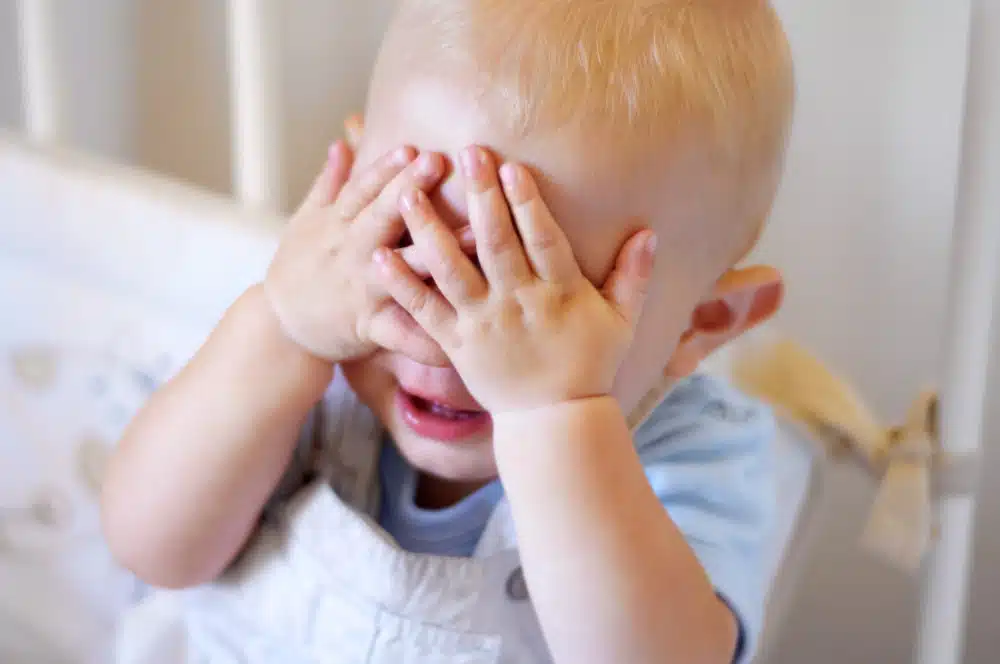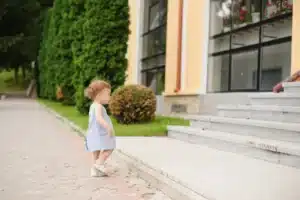By: Madison Gwizdalski MS, CCC-SLP
Social games are songs, rhymes, finger plays, and early social routines that adults sing and play with toddlers and young children with the primarily purpose of interacting and having fun together. You may already be familiar with many of these games, including Peek-a-boo, Patty-Cake, and the “Itsy Bitsy Spider”.
We love social games for all kids, but we especially love them for targeting beginning social skills with our toddlers that have early signs of autism or pragmatic language delays. Difficulties in social-pragmatic language can manifest in many different ways, including challenges with being around others for extended periods, paying attention to conversations, making and maintaining eye contact, listening and following directions, or communicating intentionally with others. Since the main goal of these games is having fun with other people, remember to incorporate themes or actions that your child loves (tickles, jumping, spinning… anything goes!). Developing consistent social connections is the basis for developing all other language skills, including using words to communicate! – When we are interacting with those around us, we develop our listening, imitation, and responding skills.
Research tells us there are 5 main reasons why social games are SUPER effective for toddlers with autism:
- Social games meet a child’s sensory needs. – we can provide sensory support through doing activities that your toddler likes to do (Crash! Run! Jump! Hide under a blanket! Squish! Tickle! Spin!).
- Social games provide a framework, structure, or better way to teach and then practice a new skill. – over time through repetition, new social games become familiar routines. Toddlers love predictability!
- Social games give a child a chance to learn and “do his part” while having FUN! – through practice and repetition, children know exactly what to do or say to participate in these routines.
- Social games can help a child with autism become purposefully verbal. – Repetitive scripts can make it easier to imitate during these familiar routines.
- Social games can be used in groups to facilitate cooperation and facilitate successful peer interaction skills. – They can imitate their peers, complete the same actions, and can eventually lead to greater cooperation during group activities (such as in preschool or kindergarten!).
If you are interested in introducing some social games to your toddler, here are a few we recommend:
| Peek-a-boo | Tickling Games |
| Patty-cake | This Little Piggy |
| Itsy Bitsy Spider | Ring Around the Rosie |
| Wheels on the Bus | Row Your Boat |
| Blowing Raspberries | If You’re Happy and You Know It |




